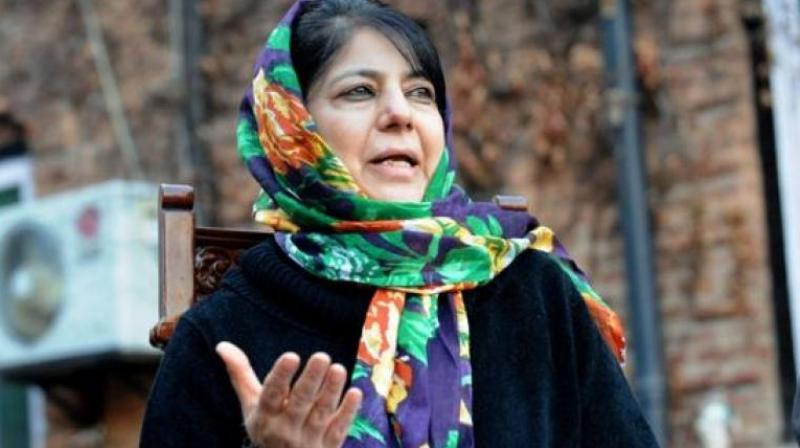Ms Mufti makes valid points, pay attention

At an event in New Delhi on Friday, and then again in Srinagar on Saturday while marking her party’s 18th foundation day, People’s Democratic Party leader and J&K chief minister Mehbooba Mufti has reiterated certain basic ideas practically in the form of a tutorial for the uninitiated in the mysteries of politics and governance in Kashmir. Evidently, these have not been to the liking of the Centre. Since it is New Delhi that determines the contours of security and politics in Kashmir, a mismatch of ideas and confrontation may develop in the governance of J&K between the PDP and BJP, the ruling coalition partners.
This will be unfortunate, as the situation in J&K has grown fragile under the Narendra Modi government. Therefore, Ms Mufti’s articulations deserve engagement, not summary rejection. The principles she highlights were accepted by former Prime Minister Atal Behari Vajpayee, who ran the first BJP-led government, but the present regime appears dismissive. Since early 2015, when the PDP-BJP government came into being in Kashmir, Ms Mufti has faced double jeopardy. The BJP has not liked the idea of Kashmir being an integral and yet different kind of part of India (unlike the Chinese who treat the relationship of China with Hong Kong as “one country, two systems”). This has created massive alienation on the ground in the Valley. Since the CM has been helpless, she has found antagonism among her own people. And there is no one in Delhi who listens to her. Perhaps her public pronouncements since Friday are in part an attempt to regain her poise on her home turf. But she makes valid points along the way, which deserve our attention.
As an RSS-related outfit has gone to court urging the scrapping of Article 35A of the Constitution, the CM has rightly argued that this provision — which says that only the J&K legislature can define who is a “permanent resident” of the state — derives from Article 370. India will have no legal claim on Kashmir if Article 370 is removed. Policy-makers since 1947 have understood this. The specific conditions include the idea that those who are not “permanent residents” cannot own property in J&K. If 370 is deleted, the CM argues, the Indian flag will find no acceptance. Ms Mufti’s other key concerns are political engagement with those who speak of “azadi” or independence, and making borders with PoK irrelevant, an idea discussed in a positive spirit since Mr Vajpayee’s time. The CM has not argued against use of the law to deter individuals thought to be involved in terrorist-financing (in the backdrop of recent arrests of Hurriyat leaders), but in favour of dialogue to budge the naysayers in Kashmir from their idea of “azadi”. What’s wrong with that?

